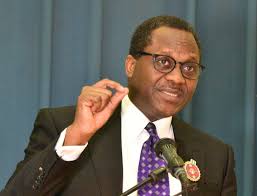The Federal Government continues to challenge incessant hikes in price of services rendered by corporate organisations
By Lukmon Ojerinde
In a deliberate move to protect the citizens against indiscriminate increase in the prices of essential services by corporate entities operating in the country, the House of Representatives has called on the Central Bank of Nigeria (CBN) to suspend the implementation of the increment in Automated Teller Machine (ATM) transaction charges because of the dire economic situation in the country.
The decision of the House was sequel to the adoption of a motion of urgent public importance sponsored by the member representing Esan Central/Esan West/Igueben Federal Constituency of Edo State, Mr. Marcus Onobun, during plenary on Tuesday March 11, 2025.
While addressing his colleagues on the floor of the House, Onobun noted that the CBN, through a recent circular, prescribed an increase in ATM withdrawal charges and a discontinuation of the free ATM withdrawals for customers using other banks’ ATMs.
He noted that this development has imposed additional financial burdens on Nigerians.
With the new policy, customers withdrawing from their bank’s ATMs will continue to enjoy free withdrawals. However, a fee of N100 per N20,000 withdrawals will be applied to customers from other banks transacting from ATMs within the bank premises.
Similarly, customers from other banks transacting from ATMs outside the premises of the bank such as malls, markets, and other public places will be charged N100 and an additional surcharge of N500.
The Peoples Democratic Party (PDP) lawmaker said Nigerians “are already grappling with multiple economic hardships, including high inflation, increased fuel prices, electricity tariff hike, and numerous banking and service charges that significantly reduce disposable income and negatively impact their welfare.
“We are worried that the imposition of additional ATM withdrawal charges will further limit the financial inclusion of Nigerians by discouraging low-income earners from accessing banking services, thereby contradicting the CBN’s financial inclusion agenda.
“The banking sector has continued to record significant profits, imposing further charges on consumers without corresponding improvements in service delivery or infrastructure is unjustifiable.”
The Speaker, Tajudeen Abbas, who presided over the plenary session, put the motion to voice vote and it was overwhelmingly supported by the lawmakers. The House thereafter urged the CBN to immediately suspend the implementation of the policy, pending proper engagement with the relevant Committees on Banking, Finance, and Financial Institutions.
Meanwhile, the Federal Competition and Consumer Protection Commission (FCCPC) has dragged MultiChoice to court over hikes in the DStv and GOtv prices.
The FCCPC had issued a directive to the company on February 27, 2025, instructing it to suspend the proposed price adjustment pending the conclusion of an investigation into its compliance with consumer protection regulations.
But as MultiChoice failed to adhere to FCCPC instruction, the latter filed legal proceedings against MultiChoice Nigeria Limited and its Chief Executive Officer, John Ugbe.
The legal action was taken against the company for allegedly violating regulatory directives, obstructing an ongoing inquiry, and engaging in conducts that contravened the Federal Competition and Consumer Protection Act (FCCPA) 2018.
The commission disclosed this last week in a press release signed by the Director of Corporate Affairs at the FCCPC, Ondaje Ijagwu.
The lawsuit, filed at the Federal High Court, Lagos Judicial Division, follows MultiChoice Nigeria’s decision to proceed with a price increase for its DStv and GOtv subscription services on March 1, 2025, despite a regulatory order to maintain existing rates.
The FCCPC issued a directive on February 27, 2025 instructing MultiChoice to suspend the proposed price adjustment pending the conclusion of an investigation into its compliance with consumer protection regulations.
However, as from March 1, 2025, the pay-TV firm announced that subscription costs for its DStv and GOtv packages would rise, citing increased operational expenses.
Under the proposed pricing, DStv Premium subscribers would see their fees increase to N44,500, while Compact+ and Compact plans would cost N30,000 and N19,000, respectively. Similarly, GOtv’s Supa Plus package was set to rise to N16,800.
The commission is pursuing legal action on three counts under the FCCPA 2018. The charges include willfully obstructing a regulatory inquiry by implementing the price hike contrary to directives (Section 33(4)), impeding an ongoing investigation by ignoring instructions to suspend the increase (Section 110) and attempting to mislead the Commission by proceeding without objection (Section 159(2), punishable under Section 159(4)(a) and (b)).
The commission accused MultiChoice of deliberately undermining regulatory oversight and disregarding due process. By implementing the price increase ahead of an investigative hearing scheduled for March, 6 the FCCPC alleged that MultiChoice acted in bad faith, setting a precedent that could erode consumer rights and market fairness.
FCCPC said, “The Commission views MultiChoice’s actions as a deliberate and calculated attempt to undermine regulatory authority, disrupt market fairness, and deny Nigerian consumers the protection afforded under the law. By disregarding the FCCPC’s directive and implementing the price hike before appearing before the Commission’s investigative hearing on March 6, 2025, MultiChoice has not only flouted regulatory processes but also demonstrated a pattern of conduct that undermines consumer rights and fair competition.”
Beyond the lawsuit, the FCCPC was also considering additional enforcement measures, including sanctions and regulatory interventions, to ensure compliance.
But the Federal High Court in Abuja on Wednesday, March 12, 2025 restrained the FCCPC from taking “any administrative steps” against MultiChoice Nigeria Limited following its DStv and GOtv price increases.
Justice James Omotosho issued the order in an ex parte motion filed by MultiChoice’s lawyer, Moyosore J. Onibanjo (SAN), against the FCCPC, marked FHC/ABJ/CS/379/2025.




